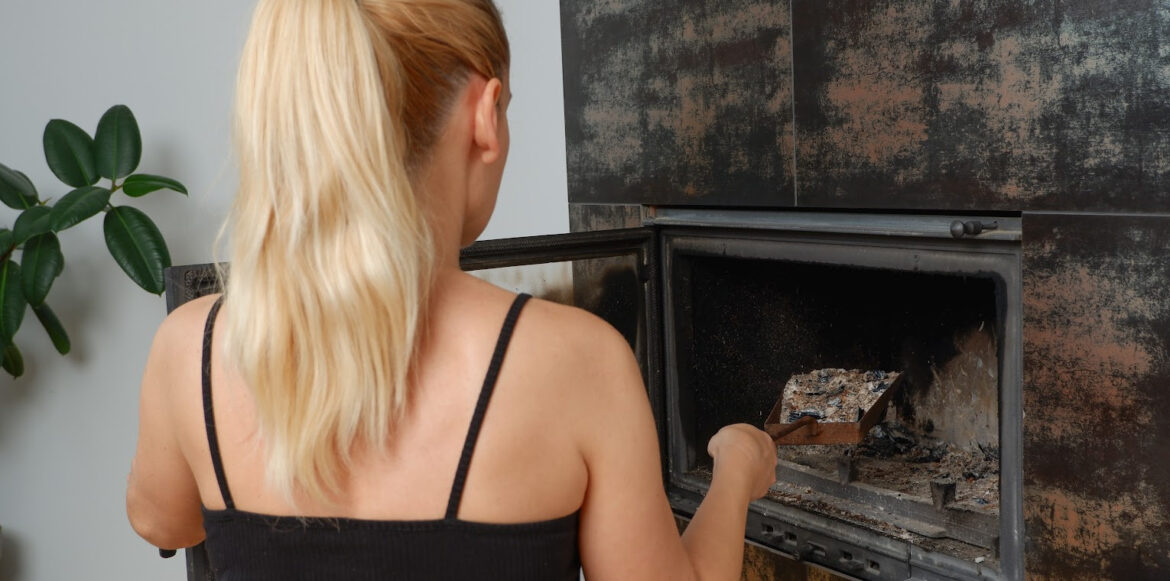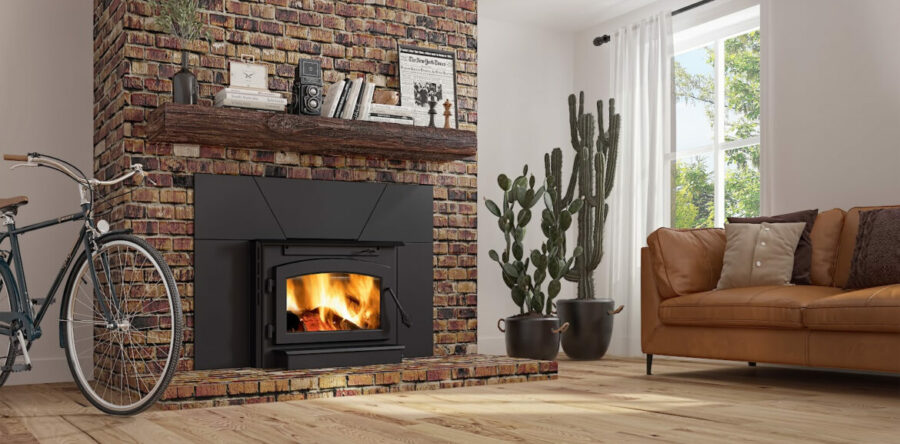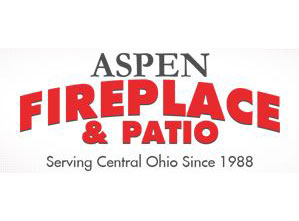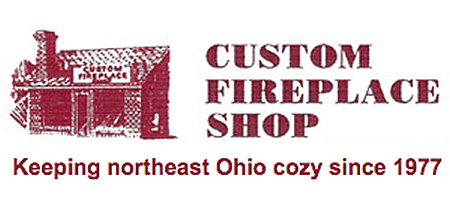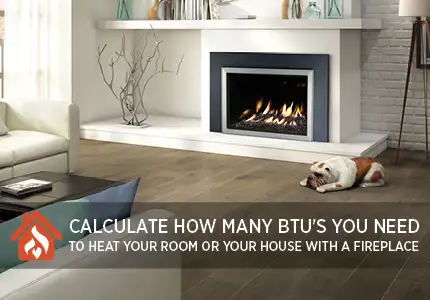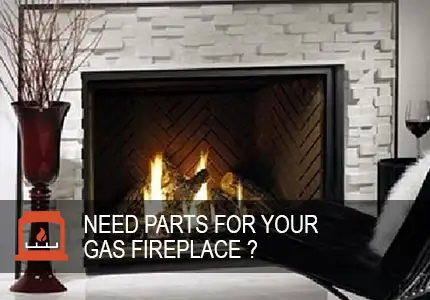A wood-burning fireplace makes any home feel warm and cozy. It is great for ambiance and is a terrific alternative source of heating. You enjoy the heat from the fire in winter, but once the nice weather comes around, you might start noticing unpleasant odors coming from your chimney. What causes this, and more importantly, how can you get rid of it? There could be several reasons for the fireplace odor in your home.
CREOSOTE AND SOOT
If your chimney or fireplace smells like asphalt or a bad barbecue, odds are high that you have creosote and soot build-up in your fireplace and chimney. Creosote comes from wood smoke. It is a dark, flammable tar that can build up in your chimney and be absorbed by masonry materials inside your chimney.
Soot is black and powdery and is mainly made of carbon. Like wood, it is an organic matter that is not completely burned.
It’s easy for creosote and soot to form in a chimney. Reduce this build-up by only burning dry and seasoned wood. Be sure to have your chimney professionally inspected and cleaned at least once a year. Cleaning will remove this build-up and will go a long way in preventing a chimney fire.
Some odors may be absorbed into the chimney’s porous block, brick, or tile.
Ask your chimney cleaning professional about treatments and solutions that can be applied after the inspection and cleaning. Usually, these products will significantly reduce the unpleasant odors.
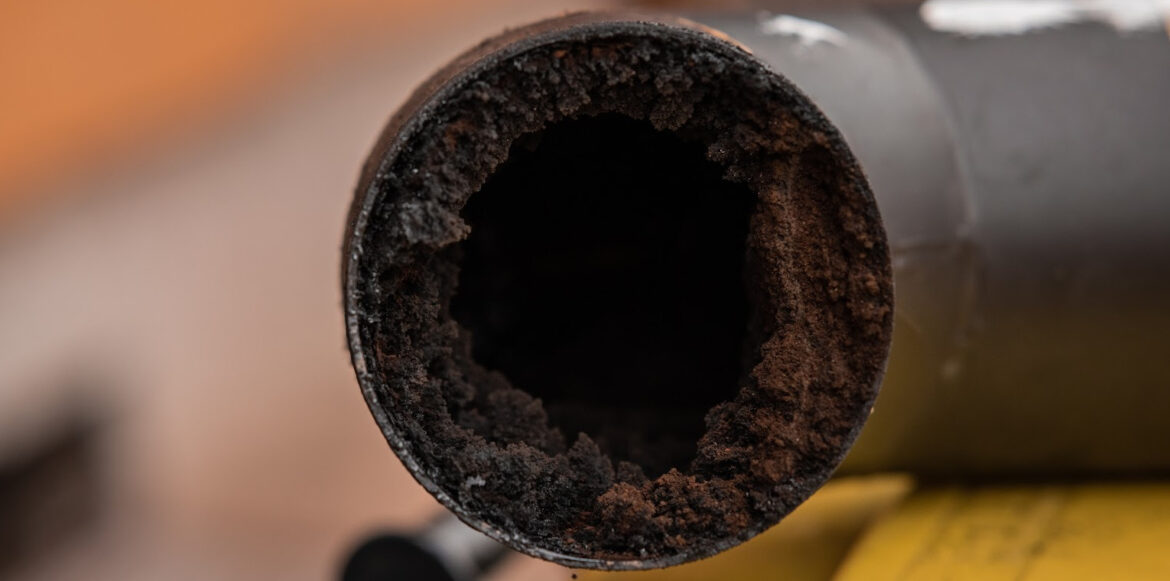
LEAVES
The smell of a compost pile or rotten or decomposing odors might mean that leaves and other debris have fallen into or been blown into the chimney. A thorough chimney cleaning should quickly take care of this situation. Be sure to have an appropriate size chimney cap installed.
ANIMALS
If it smells of animal droppings or dead animals, that’s probably exactly what’s in your chimney! Birds, raccoons and other small critters can find their way into your chimney, get stuck, cannot get out and end up dying inside the chimney. Again, a good chimney cleaning will take care of this.
But keep in mind the importance of a chimney cap. One that’s designed with mesh sides will keep these little buggers out. However, the mesh has been known to occasionally hinder the draft on wood-burning equipment and be a spot where creosote can quickly form.
It’s one more reason to call on the services of a certified, experienced chimney expert. Regular maintenance will keep this scenario from developing into an ongoing problem.
WATER
Water can create a musty odor coming from your fireplace. Water can cause nasty odors and make a real mess with soot and creosote. It can also rust the damper, damage the interior of the chimney and the flue lining, and cause brick spalling. (Brick spalling is caused by moisture penetrating the surface of your bricks. Over time, as this water freezes and expands, bricks can flake or crumble.) A chimney cap can stop water from entering your chimney and help prevent these problems.
NEGATIVE AIR PRESSURE
Even with a clean chimney and chimney cap installed , you could still smell foul odors inside your home with negative air pressure. This normally happens in newer, tightly sealed homes.
You might ask how negative air pressure can cause foul odors. Many pathways allow air to flow in and out of your home. It can be windows, doors, dryer vent exhausts, stove fans, and roof ventilation. However, the most prominent is your chimney. The air in your home is always moving. It goes out of the house through some of these pathways and is replaced by air entering through the path of least resistance, which is often the chimney.
When a fire is burning in your fireplace, the draft pulls the air through the firebox and chimney and out of the house. Because of the difference in air pressure between the fireplace and the top of the chimney, heat will cause the draft to overcome the incoming or downward pressure. This is why you will seldom smell any smoke when a fire is burning. Once the fire dies down, the reverse effect can happen. The airflow in the flue can reverse, and cold air will spill down the chimney, bringing odors.
A quick way to check if negative air pressure exists in your home is to open a window near the fireplace, five or six inches. The replacement air for combustion in the fireplace comes from the window instead of the chimney.
There are solutions, but many negative air pressure situations need professional evaluation. Maybe a top-sealing damper controlled by a cable will seal out odors when the fireplace is not in use. Installing a quality set of doors will also help. A make-up air system that is part of your forced air furnace can often be effective. An outdoor combustion air kit for the fireplace will often solve a negative air pressure problem.
ASHES AND CLEANING
Once these larger issues are addressed, there may be lingering odors. Regularly stirring the ash and removing it can help.
Hopefully, you’re aware that a professional chimney cleaning company has the expertise, equipment and products to help eliminate unwanted odors associated with your fireplace. But here are a few things that you can and should do at the end of each burning season that will also help with unwanted smells:
- Thoroughly scrape and sweep up all ashes and small chunks of coals.
- Give some thought to any carpeting, furniture or window blinds in the vicinity of the fireplace. Clean them appropriately and with odor-neutralizing products.
- Wash other fabrics or drapes in the washing machine.
- Wipe down walls and hard surfaces with an all-purpose cleaner.
- Hardwood or ceramic tile floors should also be mopped with an all-purpose cleaner.
- Consider an air purifier for your home, or at least a smaller unit installed in the area with the fireplace.
We all know that a fireplace is a terrific asset to any home. Have your fireplace and chimney cleaned and inspected every year by a professional, nationally certified chimney sweep. If you suspect a negative air pressure situation, call your WE LOVE FIRE® expert for an evaluation. And don’t forget a complete cleaning each spring … like Grandma used to do!
